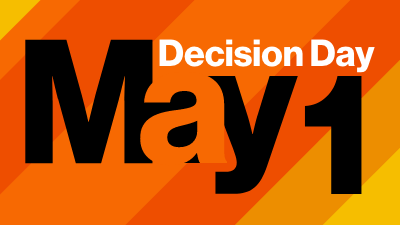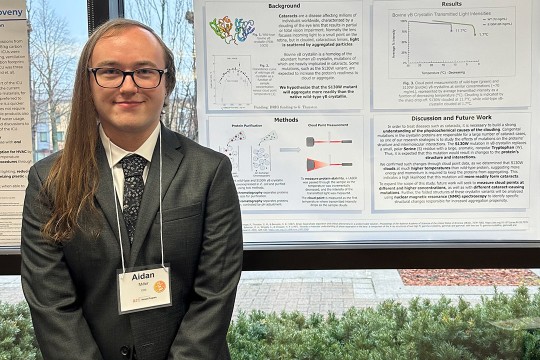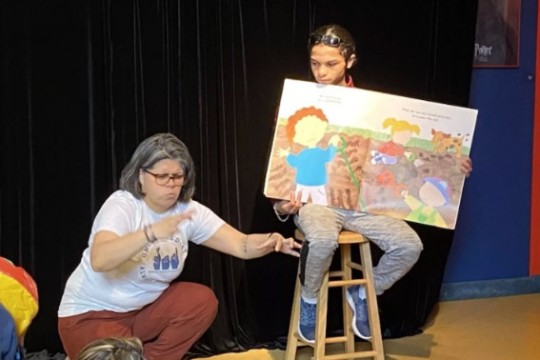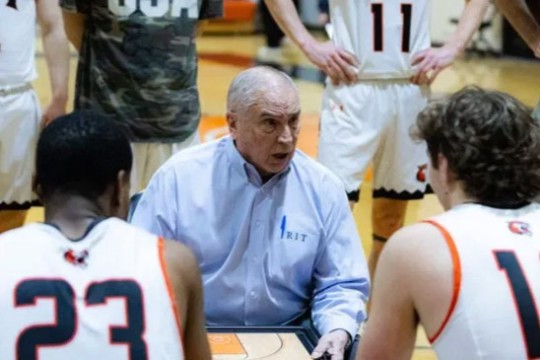Google Computer Science Program Available for High School Teachers
Free workshops designed to help teachers build new class modules and curricula
Helene Martin is a “geek who gives back,” and Ian Whalley shapes some of Google’s most-used applications through computational thinking. Both will be featured speakers at the third annual Explorations in Computing, Computer Science for High School workshop July 9-11 at Rochester Institute of Technology.
The event is free and open to area high school computer science and mathematics teachers. Participants will explore real-world computing applications and learn interactive ways of teaching computing from some of the industry’s most connected educators and engineers. Participants can register online for the event.
Workshop leaders are computing and engineering industry professionals, as well as university faculty. Whalley, a senior software engineer at Google, will be featured at the event and will discuss computational thinking—the intricate thought processes needed for problem solving that can be translated into information and computing processes—and how this philosophy works at Google.
There will also be a workshop led by RIT computer engineering students.
“They graduated from high school four or five years back and they know exactly the things that they would have wished to learn in the classroom,” says Dhireesha Kudithipudi, assistant professor of computer engineering in the Kate Gleason College of Engineering. Kudithipudi, Stephanie Ludi and James Heliotis, the latter two faculty from the B. Thomas Golisano College of Computing and Information Sciences, coordinate RIT’s Computer Science for High School program, also referred to as CS4HS@RIT.
“Some schools don’t have computer science as a core department or the math teachers are often teaching programming classes, so it would be nice to see the thread that links math and computer science or computer programming skills,” she says.
One of the presenters who has long been an advocate for making computer science, programming and engineering accessible to young people, and for providing tools to high school teachers, is Martin, a lecturer at the University of Washington and former high school teacher in the Seattle Public Schools. In 2011 the university recognized Martin for her work promoting the computer science discipline through volunteer work in the community, delivering training for middle and high school teachers around the country and mentoring undergraduates.
Additional presenters and topics include:
- Mike Kurdziel, Harris RF Communications, computing and security
- Jeff Lillie, Synaptics, smart-phone technology
- Ray Ptucha, RIT computer engineering, robotics
- Reynold Bailey, RIT computer science
- James Heliotis, RIT computer science, Python Workshop
- Cory Merkel, RIT computer engineering student, app inventor
- George Ferguson, University of Rochester, computer science research trends
“We want to give teachers a flavor of different things, not just the hands-on tutorials, but also to show them what is happening in the field,” Kudithipudi says. “Teachers don’t always have the luxury to build new curricula, they want to see that they can use the information as learning modules in their classrooms. We should give them the flexibility by giving them more resources for their classrooms.”
For more information about the event, contact Kudithipudi at dxkeec@rit.edu or 585-475-5087.
About Computer Science for High School: In 2010, RIT was one of the first 20 colleges in the U.S. involved with Google and its Computer Science for High School initiative, a program designed to promote computer science and computational thinking in high school and middle schools. With a grant from Google’s Education Group, universities develop workshops for local high school and middle school computer science teachers. These workshops incorporate informational talks by industry leaders and discussions on new and emerging computer science curricula at the high school and middle school level. In 2012, RIT is among more than 130 universities hosting the programs in the U.S., Canada, Europe, the Middle East, Africa, China, New Zealand and Australia.















